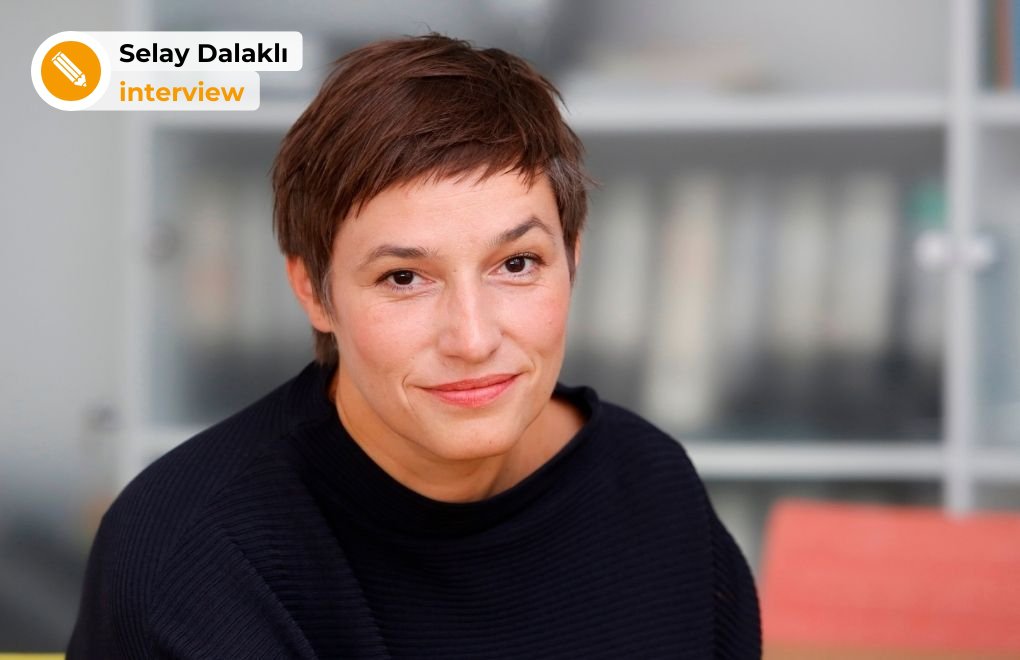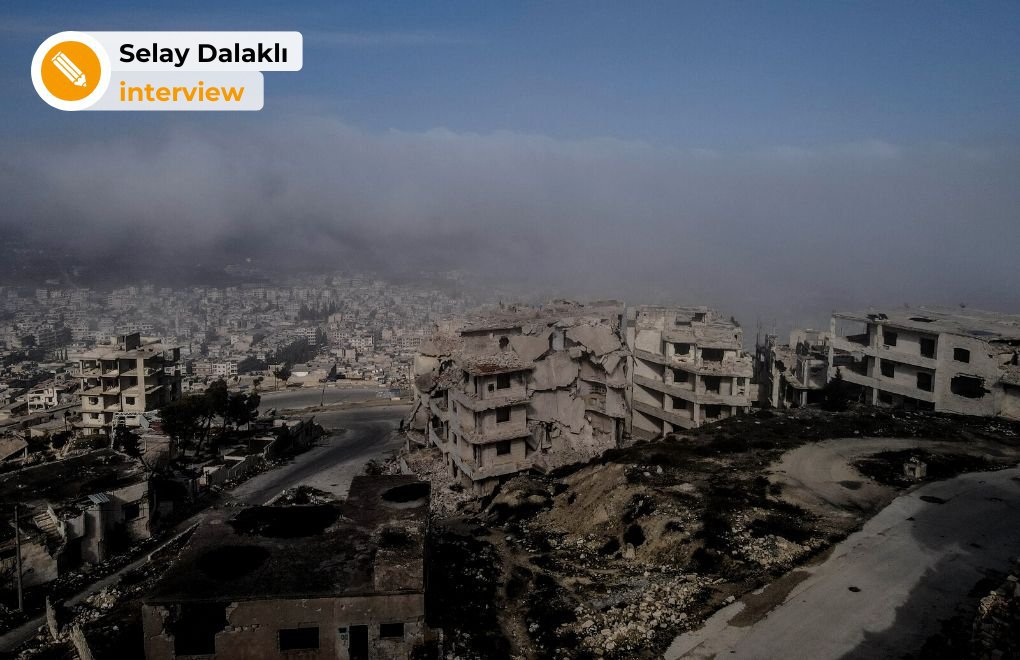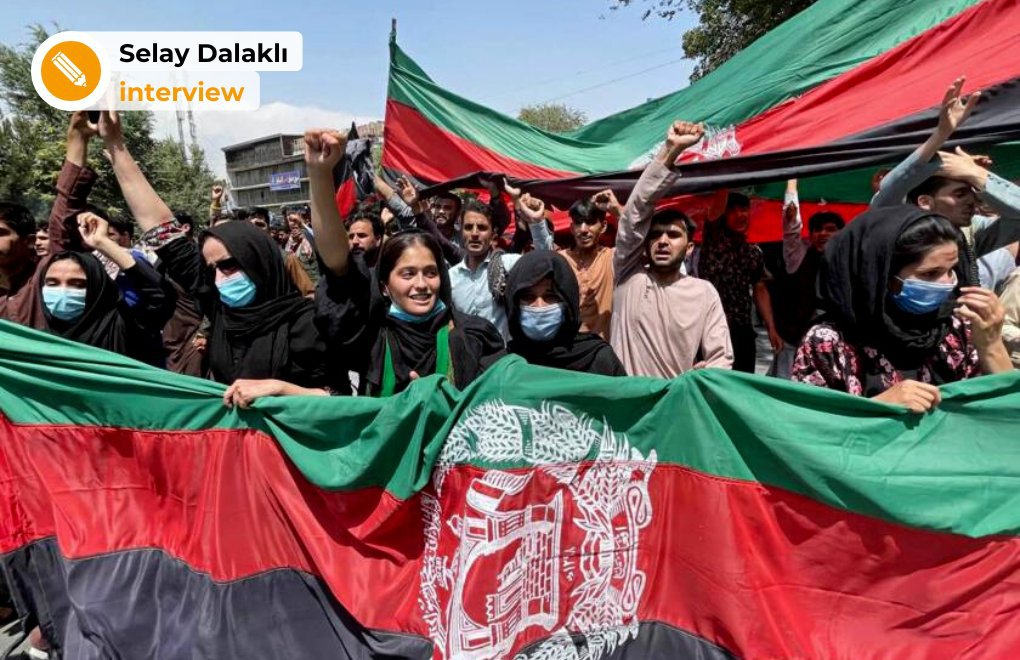* Image: bianet
Click to read the article in Turkish
Democratic erosion and creeping authoritarianism...
Most of us may have heard this expression for the first time or we may not be able to precisely define it when we first read it. But in the light of our experience of living in Turkey, especially in the past 20 years, we can make an educated guess as to what this expression has to tell us.
Referring to the ongoing debates on the existence of a third wave of autocratization in the world, Prof. Murat Somer from Koç University Department of Political Science and International Relations underlines that what we have in Turkey and the world today is a type of authoritarianism that is different from the ones in the past in terms of its methods and patterns.
"Creeping authoritarianism is an expression used to describe especially the early stages of this model," explains Somer, adding:
"Today's authoritarian powers never put forward an anti-democratic ideology; they do not overtly do away with democracy. On the very contrary, most of the time, they claim to be more democratic."
We have discussed authoritarianism with Prof. Murat Somer...
A new wave of authoritarianism and counter-waves
When we consider  a wide geography from Hungary to Russia, from Serbia to Poland and Central Asia, is it possible to talk about a trend of authoritarianism or creeping authoritarianism, as you call it? And where does populism or right-wing populism stand in this picture?
a wide geography from Hungary to Russia, from Serbia to Poland and Central Asia, is it possible to talk about a trend of authoritarianism or creeping authoritarianism, as you call it? And where does populism or right-wing populism stand in this picture?
There is a democratic erosion trend in the world. We have seen a regression in existing democracies such as the United States of America and India as well as a slowdown in the democratization of authoritarian countries. We have also been witnessing the military and economic rise of some countries ruled by authoritarian regimes.
Unlike in the 1990s, the most powerful countries of the world are no longer solely democracies; China is now also one of them.
Today, political scientists discuss that we are amid a third wave of autocratization in the world, it has replaced the third wave of democratization that began in the 1970s. We also discuss that this rising authoritarianism in the 21st century has some novel characteristics. Some say that it began in the mid-1990s. Some argue that it began in the 2000s, in 2006. The latter is more plausible in my opinion.
The word "wave" is of course just a metaphor here. But it is a very apt metaphor in the following sense: Just like waves in the sea, there is always a counter wave underneath. So, even though the dominant trend is authoritarianism, not all countries are becoming authoritarian. There are important potential democratic breakthroughs in countries such as Chile, Colombia, Bolivia and Germany.
In the meantime, societies are divided. Countries such as Poland, the US and Turkey are divided over democracy. While "half of" society, figuratively speaking, pins its hopes on democracy, the other sees authoritarian and powerful leaders as the way out. The fact that there is not a single trend in one direction tells us that it is possible to choose democracy and freedom.
What makes today's authoritarianism different?
Authoritarianism today is different from the past. Different methods are used and it has a different pattern. Creeping authoritarianism is an expression used to describe especially the early stages of this model.
In the past, authoritarianism used to be set into motion by actors who were openly against democracy; I mean, by the ones who had an anti-democratic ideology... For instance, fascist ideologies or communist ideologies are already of the opinion that democracy in the sense that we understand today is wrong.
There were also some powers who argued that democracy should be suspended for some time even when they were not fundamentally against democracy, at least on paper, such as some military or personal dictatorships. I mean, such as the promissory coups in Turkey in 1960 and 1980... All in all, they did not hide the fact that they abolished or suspended democracy, at least for a period of time.
As for today's authoritarian powers, they never put forward an anti-democratic ideology or they do not overtly do away with democracy. On the very contrary, most of the time, they claim to be more democratic.
Besides, they try to build a certain democratic legitimacy. A vast majority of them are elected governments. So, they are not appointed or ascended to power with a coup, but they set this authoritarianism into motion as popularly elected governments, which is perhaps one of the most important points.
A gradual and incremental authoritarianization
Second, they make the country authoritarian in a gradual and incremental way. We may call it democratic erosion or backsliding, incremental , executive aggrandizement or creeping authoritarianism. In the past, it was clear for everyone when democracy collapsed and when a different regime came to power. Both the ones advocating and opposing it were aware of it. But, today, it is never clear whether there is still democracy or when it is eliminated. Because it happens through steps that I call micro coups.
In fact, each one of these steps usually happens to be confusing; I mean, they are not openly authoritarian. They are generally steps that some call democratic while others call them autocratic. For instance, omnibus laws are the best cases in in the sense that they may involve some democratizing provisions while also containing others paving the way for autocracy. Likewise, caderization or institution-packing seem to be rather innocent in the beginning.
I am of the opinion that all these make today's authoritarianism more dangerous than the past in some respects.
Different countries, similar methods and narratives
When you consider the countries where authoritarianism is in question, do you see any similarities between different countries or do you think that they take a cue from one another?
I absolutely do. This is in fact quite apparent. The most striking example of this is that the Republican Party in the US has recently decided to have one of its important conventions in Hungary. Interesting articles have been published in the US about this issue. "Orbanization" or "Fidesziation" of the Republicans, I mean, their turn to the extreme right but also new autocracy, has been the case.
Apart from this, there has been a great mutual support, communication and learning from one another between Turkey under President Recep Tayyip Erdoğan and Venezuela under Nicolas Maduro.
On the other hand, it is not something researched, but I think that international political consulting firms may have been very effective here. These consulting firms in the US, the UK, in other countries, including Russia, develop political and discursive tactics with incrementally and insidiously autocratizing consequences. They do this very deliberately and they offer consulting services to these authoritarian governments. I don't think we can democratic backsliding in the world without somehow liberating democratic politics from the influence of such organizations who have a lot of money and power.
For instance, a colleague from South Africa and I realized this during a conversation. I mean, South Africa and Turkey are two countries that you do not think may be similar, but as we talked about it, we saw that the narratives and methods used in both countries by elected but authoritarian governments are really very similar.
There must be a reason for this. There must be something in common. But there may of course be other reasons that we have not yet understood much. I mean, as you know, what we have in the world may actually result from some kind of "Zeitgeist" and it can simultaneously affect societies and political leaders in the world.
Authoritarianism and its causes
We also need to differentiate between authoritarianism and its underlying causes.
What we call authoritarianism is a political outcome after all. Some political actors use authoritarian methods to attain certain political goals and some people support them to meet certain interests.
Here, it is of utmost importance to understand these political goals and motives. I think that behind this authoritarianism generally lies the crisis that the economic models, political and institutional models, informational and educational models in the world have found themselves in.
In several countries of the world, in democratic countries, political elites continue supporting these institutions and models since they have themselves come out of this system. Being an elite means being the elite of a certain system after all. But when we look at it, we see that these models have actually lost their former functions in the whole world.
For instance, when we consider the most developed and prosperous democracies, distribution of income and equality of opportunity have been very broken. When we consider education, there is quite an elitism in the best universities of the world. The children of elite families go to elite universities, and social class differences reproduce themselves and there is a lower equality of opportunity.
Of course, the situation and pressure in Turkey is very extreme but commercialization and bureaucratization have really eroded the job security and independence of academics in Western democracies as well.
Power has shifted from scholars to bureaucracies including the EU, private companies and political governments. What problem is worth researching and important, what is worth reading and writing or who is the most capable to do certain research and to take certain jobs are often determined by funding institutions and sometimes even by commercial websites (such as academia.edu) rather than academics themselves.
Media and a new type of censorship
As for the media models, the media is mostly owned by large capital owning individuals, so it is mostly in the monopolized or oligopolized private ownership.
In former forms of authoritarianism, the mindset was this: The problem is that the states, authoritarian states, own the media, impose bans and censorships. Today, it is much more complicated because there is more self-censorship than censorship, and confusion rather than censorship of information.
If the state does not impose bans this does not guarantee free media in its own right. The media outlets owned by pro-government oligarchs that spread post-truth narratives are enough for this. Even when the media owners do not tell journalists to write or not to write something, they employ the journalists who write certain things or put forward certain ideas. Therefore, the journalists who do not have job security or look for a job have to adapt to this situation.
Something that we may call a new type of censorship is the case here. So, privatization of the media or social media (which itself creates echo chambers and is open to disinformation) is not the solution. In other words, we need to develop different media models.
'They use the weaknesses of democratic systems'
Likewise, political parties have been declining on a global scale. This may look like a secondary problem in the face of others such as migration and climate change, but they are very important. Because who will develop solutions to these problems? Academia, media, civil society and political parties will.
I think that these problems cause unease in society and this unease is felt most by the ones who are not elites. Or by counter-elites... And they are looking for an ideology. They are looking for a different political identity. It is these authoritarian governments, these authoritarian movements, parties and leaders that respond to this demand and they give an authoritarian response. They may also be supported by the people, by a wide section of society and elites. I think that this underlies the demand for authoritarianism.
In the meantime, this new type of authoritarianism uses the weaknesses of existing democratic systems. That is, they use particular weaknesses and deficiencies prevalent in these systems as a weapon against them.
For instance, a leader like Orban or Erdoğan.. In Turkey, we already know it very well. This began earlier in Turkey.
How do they use existing democracies' weaknesses? Consider what happened when they are criticized for the fact that oligarchs, businesspeople close to them or even their relatives are at key positions in the economy, media. They own 80 percent of the media. When criticized, they say, "Look at the US. Doesn't the 80 percent of the media there belong to certain families also? Isn't the US an advanced democracy?" In other words, they use the weaknesses of the business models in existing democracies to topple democracy.
As for Turkey, we may give the Doğan Media Group as an example. Doğam Media of course was not as pure as the driven snow. It had ties with all governments, it was politicized. These may well be questioned, of course. But Turkish media dominated by Doğan was much freer than today; it was relatively much more impartial.
But when creeping authoritarianism is set into motion and government oligarchs acquired Doğan media with government provided funds and leverage, this argument is made: "Didn't the Doğan Media do the same thing?" Or when intellectuals, university students or politicians are imprisoned, they ask: "Didn't the same thing happen in the 1970s? Wasn't there the Susurluk incident? It used to happen in the past, too."
Tomorrow: 'Turkey is one of the countries resisting autocratization the most'
About Prof. Murat SomerMurat Somer is a Professor of Political Science and International Relations at Koç University, Istanbul, and an expert on polarization and de-polarization, religious and secular politics, ethnic conflicts, autocratization, and democratization. His recent publications include two special issues on polarization and democracy ("American Behavioral Scientist", 2018, and the "ANNALS of the AAPSS", 2019, both co-edited with Jennifer McCoy), and "Return to Point Zero: The Turkish-Kurdish Question and How Politics and Ideas (Re)Make Empires, Nations and States" (SUNY Press, forthcoming in June 2022). |
(SD)










.jpg)
